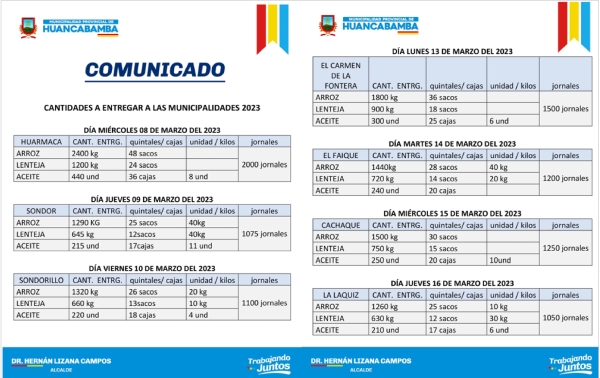Lo último de Super User
8689 comentarios
-
Enlace al Comentario
 Domingo, 17 Agosto 2025 03:58
publicado por Leonadum
Domingo, 17 Agosto 2025 03:58
publicado por Leonadum
¡Saludos!
Casino online dinero real MГ©xico acepta pesos mexicanos. casino real en linea Disfruta bonos exclusivos para MГ©xico.
Lee este enlace - https://pokerplayersonline.cfd/
casino real en linea
casino en lГnea confiable
casino online dinero real mГ©xico
¡Buena suerte! -
Enlace al Comentario
 Domingo, 17 Agosto 2025 03:44
publicado por Leonadum
Domingo, 17 Agosto 2025 03:44
publicado por Leonadum
¡Bienvenido!
Un casino en lГnea confiable garantiza seguridad total. casino online mГ©xico dinero real Juega con tranquilidad y confianza.
Lee este enlace - https://pokerplayersonline.cfd
casino real en linea
casino en lГnea confiable
casino online dinero real mГ©xico
¡Buena suerte! -
Enlace al Comentario
 Domingo, 17 Agosto 2025 03:44
publicado por Leonarah
Domingo, 17 Agosto 2025 03:44
publicado por Leonarah
¡Hola!
Un casino real en lГnea brinda emociГіn autГ©ntica. casino online dinero real mГ©xico Vive la experiencia Las Vegas.
Lee este enlace - https://pokerplayersonline.cfd/
juego casino real
casino real en linea
casino online dinero real mГ©xico
¡Buena suerte! -
Enlace al Comentario
 Domingo, 17 Agosto 2025 03:43
publicado por Leonarah
Domingo, 17 Agosto 2025 03:43
publicado por Leonarah
¡Buen día!
Casino online dinero real MГ©xico acepta pesos mexicanos. casino online mГ©xico dinero real Disfruta bonos exclusivos para MГ©xico.
Lee este enlace - https://pokerplayersonline.cfd/
casino en lГnea confiable
casino real en linea
casino online mГ©xico dinero real
¡Buena suerte! -
Enlace al Comentario
 Domingo, 17 Agosto 2025 03:43
publicado por Leonarah
Domingo, 17 Agosto 2025 03:43
publicado por Leonarah
¡Saludos!
El casino en lГnea dinero real ofrece premios reales. casino real en linea Gana desde tu casa hoy.
Lee este enlace - https://pokerplayersonline.cfd/
juego casino real
casino online mГ©xico dinero real
casino en lГnea dinero real
¡Buena suerte! -
Enlace al Comentario
 Domingo, 17 Agosto 2025 03:43
publicado por Leonarah
Domingo, 17 Agosto 2025 03:43
publicado por Leonarah
¡Saludos!
Un casino en lГnea confiable garantiza seguridad total. casino online dinero real mГ©xico Juega con tranquilidad y confianza.
Lee este enlace - https://pokerplayersonline.cfd
casino en lГnea dinero real
casino real en linea
casino online mГ©xico dinero real
¡Buena suerte! -
Enlace al Comentario
 Domingo, 17 Agosto 2025 03:41
publicado por Leonarah
Domingo, 17 Agosto 2025 03:41
publicado por Leonarah
¡Buen día!
Casino online dinero real MГ©xico acepta pesos mexicanos. juego casino real Disfruta bonos exclusivos para MГ©xico.
Lee este enlace - https://pokerplayersonline.cfd
casino en lГnea confiable
casino en lГnea dinero real
juego casino real
¡Buena suerte! -
Enlace al Comentario
 Domingo, 17 Agosto 2025 03:41
publicado por Leonadum
Domingo, 17 Agosto 2025 03:41
publicado por Leonadum
¡Saludos!
Cada juego casino real paga premios verdaderos. casino en lГnea confiable Encuentra tu juego favorito ahora.
Lee este enlace - https://pokerplayersonline.cfd
casino en lГnea dinero real
casino en lГnea confiable
casino online dinero real mГ©xico
¡Buena suerte! -
Enlace al Comentario
 Domingo, 17 Agosto 2025 03:41
publicado por Leonarah
Domingo, 17 Agosto 2025 03:41
publicado por Leonarah
¡Qué tal!
Un casino real en lГnea brinda emociГіn autГ©ntica. casino real en linea Vive la experiencia Las Vegas.
Lee este enlace - https://pokerplayersonline.cfd
casino en lГnea confiable
casino en lГnea dinero real
casino real en linea
¡Buena suerte! -
Enlace al Comentario
 Domingo, 17 Agosto 2025 03:38
publicado por Leonadum
Domingo, 17 Agosto 2025 03:38
publicado por Leonadum
¡Hola amigo!
El casino en lГnea dinero real ofrece premios reales. casino real en linea Gana desde tu casa hoy.
Lee este enlace - https://pokerplayersonline.cfd
juego casino real
casino en lГnea confiable
casino online mГ©xico dinero real
¡Buena suerte!
